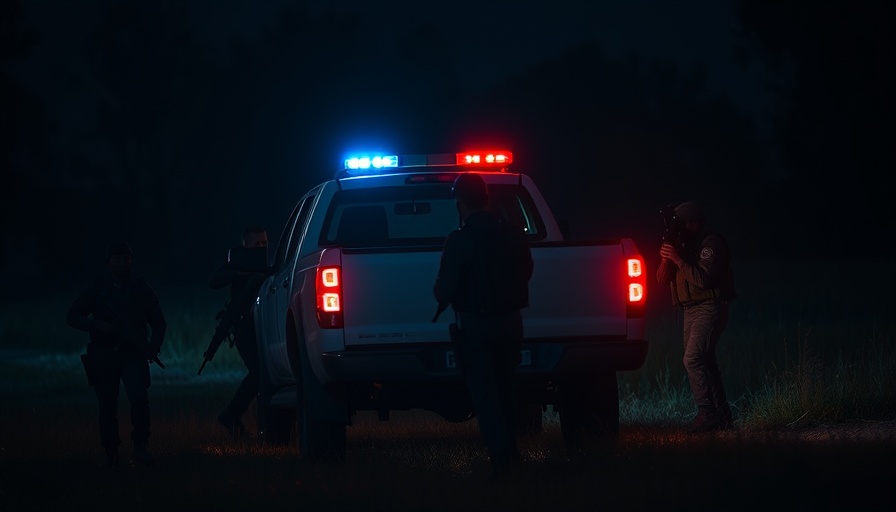
The Shifting Landscape of Mexico's Drug Trade
The ongoing turmoil within the Sinaloa Cartel is not just a local issue; it has far-reaching implications for the worldwide drug trade. Previously dominant, the Sinaloa Cartel is in a state of disarray, a situation that has created an opportunity for rival gangs to gain traction.
Internal strife within the cartel, largely stemming from intense competition between factions led by the sons of notorious drug lord Joaquín "El Chapo" Guzmán, has weakened its longstanding control. A partnership formed with the Jalisco New Generation Cartel, an adversary once seen as a secondary threat, is a surprising twist in the narrative of Mexican organized crime.
Broader Consequences: What Lies Ahead for Global Criminal Networks?
This unexpected alliance may usher in a new era for the drug trafficking landscape, as two of Mexico's fiercest organizations might consolidate power. If successful, the resulting merged entity could establish dominance over drug trafficking routes extending far beyond Mexico, influencing countries across North America and even into Europe.
Analysts predict that this partnership could enable a more efficient distribution network for drugs, especially fentanyl, which is wreaking havoc primarily in the United States. The repercussions might extend to related criminal activities, including human trafficking and arms smuggling.
The Human Cost: Communities Affected by Cartel Violence
The violence associated with the Sinaloa Cartel conflicts isn't just a matter of turf wars among criminals; it devastates local communities. With the chaos unfolding in places like Culiacán, families are torn apart, and civilian safety is jeopardized. Fear and insecurity become the norm as news of murder and unrest permeate daily life.
As the cartel struggles to maintain its grip, innocent citizens end up as either collateral damage or unwilling participants in the sinuous webs spun by these criminal enterprises.
History of Drug Trafficking in Mexico: A Timeline of Violence and Control
Understanding the current state of affairs requires looking back at the history of drug trafficking in Mexico. From the Guadalajara Cartel’s initial establishment in the late 1970s to the rise of the Sinaloa Cartel and the emergence of newer players like the Jalisco New Generation Cartel, the landscape has been marked by continuous bloodshed and shifting allegiances.
Each turning point reflects changing political climates, both in Mexico and the United States, pushing cartels to adapt or face extinction. Today’s alliances are rooted in a history of mistrust, revenge, and the pursuit of power.
Community Voices: How Ordinary People Survive Amidst the Chaos
The complex dynamics of cartel wars can overshadow the tales of everyday life in affected communities. Local individuals bravely navigate a landscape fraught with danger, where survival requires resilience and often incredible ingenuity. Some turn to community organizations or NGOs dedicated to providing support and a path away from violence.
These common folks provide a sobering reminder that behind every news headline lies a tapestry of human stories, filled with struggles and hope amidst chaos.
Future Insights: Will This Alliance Shift the Power Dynamics?
The future remains uncertain as the Sinaloa Cartel and its newfound ally carve their way through a turbulent environment. Experts suggest that we may witness a consolidation of power in fewer hands, leading to more organized operations but also potentially greater violence as rival gangs react.
Predictions indicate that if this merger is successful, other groups may seek similar partnerships, fundamentally altering how drug trade is managed and regulated, both in Mexico and worldwide.
Final Thoughts: A Dangerous Game of Power and Influence
The desperate alliance between the Sinaloa Cartel and its adversary signals a pivotal moment for global drug networks. As internal conflicts evolve into strategic partnerships, the implications for public safety and law enforcement are profound. Countries affected by these changes need to prepare for a potentially more dangerous scenario as criminal empires consolidate power.
Ultimately, the cartels are locked in a deadly game of survival, with stakes that extend far beyond their borders, challenging governments and local communities to respond effectively and urgently.
 Add Row
Add Row  Add
Add 




 Add Row
Add Row  Add
Add 

Write A Comment